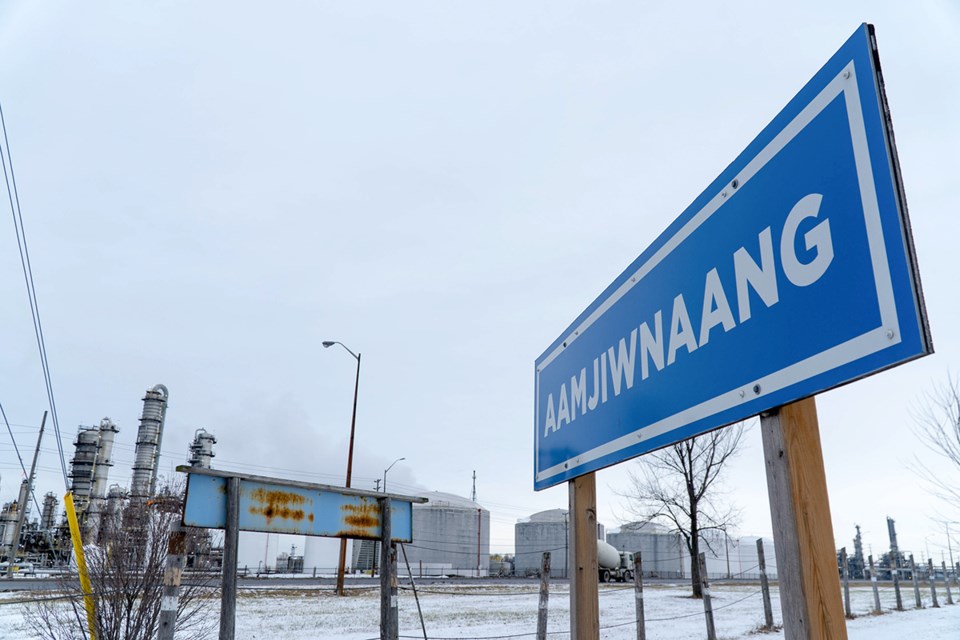Troy Shantz
An Aamjiwnaang First Nation member is one of seven young people who have taken Ontario to court for not doing enough to prevent climate change.
Beze Grey, 25, says the Ford government violated their Charter rights to life, liberty and security of person when it weakened provincial climate targets in 2018.
The government attempted to have the lawsuit tossed in April. Lawyers from environmental group Ecojustice and Stockwoods LLP, who are representing the youth, filed documents recently to be heard in Ontario Superior Court next month.

“The Ford Government is really letting us down with a lot of their targets for 2030,” said Grey, a self-described land defender.
“As Indigenous, I’d really like to be able to practice my culture and traditions, but with climate change that’s becoming an issue.”
Aamjiwnaang is largely surrounded by petrochemical companies whose emissions have impacted residents for generations, including, among other things, their ability to hunt the land, Grey said.
“I grew up with the refineries and I actually thought they were cloud-makers because of how much steam and pollution they were putting out,” the SCITS grad said.
“It’s different to try and practice (our culture) than it was for my grandma, and part of that is because of climate change.”
Ontario has argued court isn’t the right forum in which to address climate change. The government has even questioned whether it can do anything to prevent its impact, Ecojustice said.
Ontario says its emission reduction plan will cut 17.6 megatonnes by 2030, achieving a 30% reduction from 2005 levels.
Critics say the Ford government plan would only cut 6.3 megatonnes by 2030, and even the provincial Auditor General has concluded Ontario’s plan is too weak to meet its own targets.
“The refineries are so close that those targets mean a lot to me, and they mean a lot to my family,” said Grey.
The other young applicants behind the climate suit are Sophia Mathur, 13, Zoe Keary-Matzner, 13, Shaelyn Wabegijig, 23, Shelby Gagnon, 23, Alex Neufeldt, 24, and Madison Dyck, 24.
Grey says they’re prepared for the next step. The court is scheduled to hear oral arguments on the motion to strike the suit in Toronto on July 13.
“It’s daunting fighting the legal system in this way because Indigenous people have been treated very unjust in court,” said Grey.
“This isn’t the Anishinabek way, we didn’t have court systems like this.”
What’s really needed is for Ontario to come up with a new and better plan to reduce emissions and regulate polluters based on science, Grey said.
